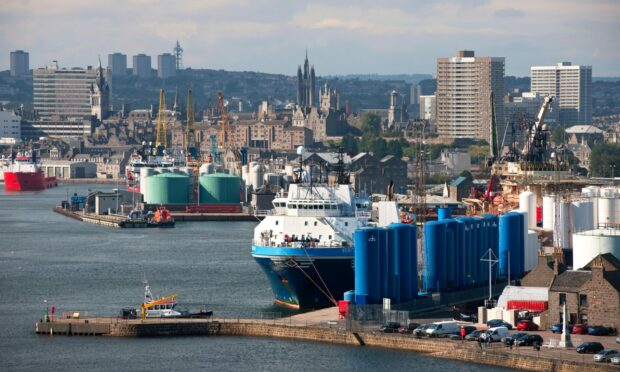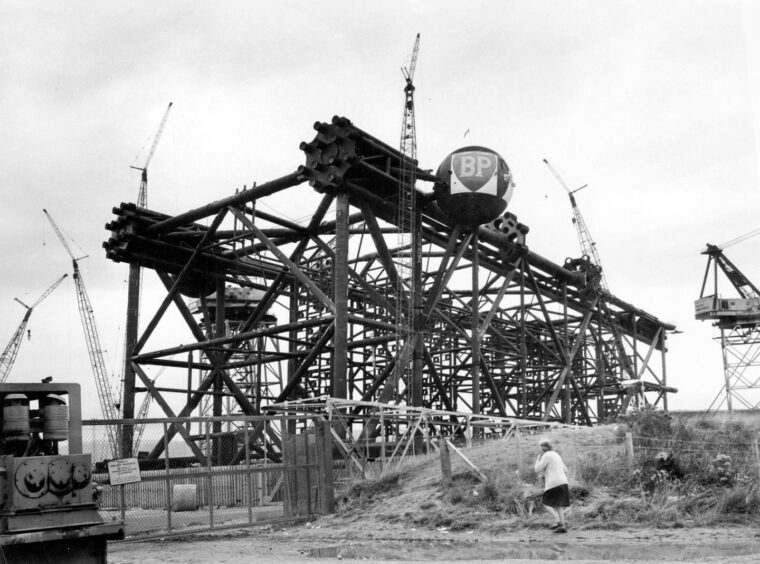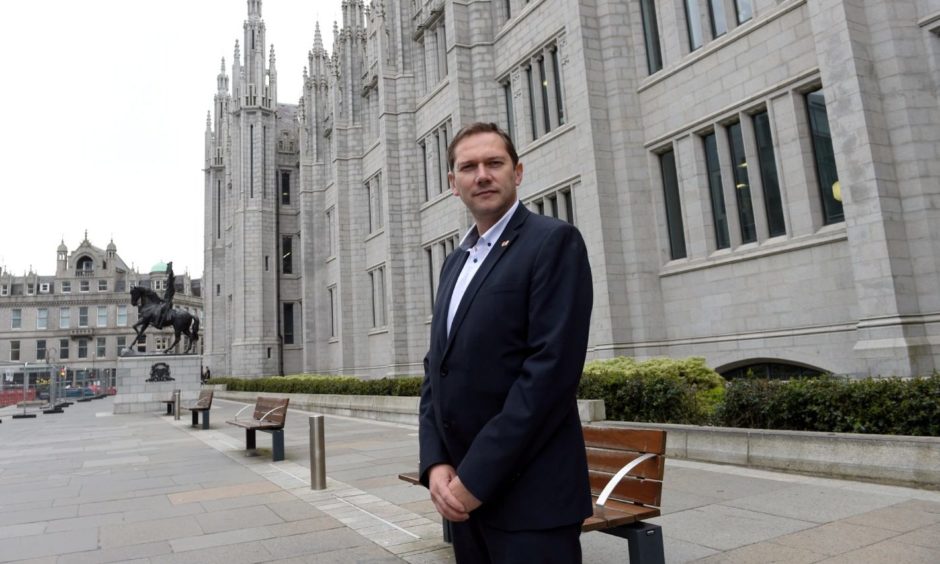High house prices and the decline of traditional industries like fishing are just two of the downsides North Sea oil and gas brought to Aberdeen, researchers have claimed.
An Aberdeen University report has revealed the dubious distinction having the title of “Europe’s oil capital” has brought to the Granite City.
The report, done in collaboration with environmental campaign group Uplift, outlines that following the north-east’s commitment to oil and gas, the city saw a decline in traditional industries, increased pressure on housing and local authorities and growing inequality, among other issues.
It has been well-documented how the hydrocarbon industry has benefited Aberdeen, and this study does not shy away from that.
It explains that the population of Aberdeen was in decline before the oil and how high-paying jobs came to the city as oil and gas firms moved in, which not only benefited the people working in the industry but the local economy as well.
However, Daria Shapovalova, Tavis Potts, John Bone and Keith A Bender’s research, which will sit within a wider body of work, also shows the other side of the coin.
Many oil and gas jobs went to newcomers
Citing the decline of the Granite City’s papermaking, fish processing, textiles and clothing industries, the report quotes an academic article that argued “competition with oil raised the costs and reduced the availability of labour and property to non-oil firms”.
The article, initially published in in 1989 Scottish Geographic Magazine by MG Lloyd and D Newlands said: “Those non-oil industries already in decline saw an acceleration of that decline.
“Other firms seeking to maintain or expand output and employment were unable to do so.”
Between 1977 and 1981 Aberdeen lost a quarter of its jobs in food processing and a fifth of its engineering, shipbuilding and textiles.
And while new jobs were being created by oil and gas, the University of Aberdeen’s research indicates that many of these positions went to newcomers to the city.
However, In 1982, the whole of the north-east was removed from regional policy assistance due to low unemployment.
Despite traditional industries seeing a downturn, overall unemployment was low and no targeted measures were adopted at the time.
Impact on housing now and then
Between 1975 and 1991, some 15,000 new houses were built in Aberdeen, with even more being built in the north-east region.
House prices were rising at a rate of 18% per year which ranked the region amongst the most expensive places to buy a home in the UK.
Not everyone could afford the expensive properties in Aberdeen.
The then Grampian Regional Council stated: “the scale of oil developments…has contributed to difficulties for local population in finding adequate housing by means of increasing the price of private housing and by inflating the demand for limited public sector housing.”
It is reported that those most affected were young children, the elderly, young couples and pregnant women.
The research cites a 2022 article that showed the price of oil and gas is still an issue for housing in the city.
In that article, Joni Esson of Esson and Aberdein said: “The property market in Aberdeen and the north-east could be on the cusp of a rebound due to renewed confidence in the oil and gas sector.
“With higher oil prices and continued uncertainty in Europe due to the war in Ukraine, governments are revising their energy policies and the UK is no different in that it will try to extract as much hydrocarbons as possible.
“This is bound to have an impact on the housing market in Europe’s oil capital and tied in with a huge increase in renewable energy sector activity, Aberdeen will attract an influx of skilled workers who will need new homes.”
Inequality
In the late 1980s, it was reported that the government failed to provide adequate support to combat the financial inequality in Aberdeen.
The research explains that despite bringing high-paying jobs to the region, the oil boom “favoured men rather than women, and middle class rather than working-class people”.
This created a greater disparity between the earning of men and women in the region at the time.
According to the University of Aberdeen research: “The idea of trickle-down of benefits did not seem to materialise all throughout the city”
Overall, despite bringing prosperity to many in the region, the oil and gas industry in Aberdeen furthered the divide between those with the most in society and those with the least.
North-east Scottish Conservative MSP Douglas Lumsden agreed with the findings of the report, however, he pointed to more recent examples than those listed in the Aberdeen University research.
Mr Lumsden said: “The notion that everything is rosy in Aberdeen because it is seen as the ‘oil and gas capital of Europe’ is completely misleading.
“Hundreds of jobs have been lost from the collapse of Stoneywood paper mill while a quarter of shops still sit empty on Union Street.
“Our city raises almost double the Scottish average of its council funding through council tax and business rates yet has the lowest funded local authority in the country.
“The SNP’s unfair rates regime is killing businesses across Aberdeen with firms choosing to demolish their premises to save money as the current system, based on 2015 economic conditions, is driving people away and stifling investment.”
This comes as SNP leadership candidate Ash Regan told The Press and Journal that her party has “neglected” the north of Scotland over road dualing failures and plans to shift away from oil and gas.
Ms Regan said: “It’s worse than I thought. People in the north-east just feel that they’ve really been neglected over the last while by the direction the SNP has been taking.”




Conversation